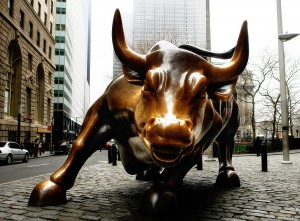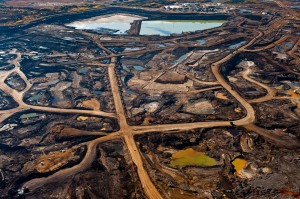I know: EmPHAsis strikes again. But this is actually about the evolutionary arc of how climate change has been considered, the cost-benefit analysis it began with, and what’s left of that once the waters begin to rise:
“In the era before the Stern Review,” say Frank Ackerman and Elizabeth Stanton, “economic models of climate change were typically framed as cost-benefit analyses.” This framing has been preeminently exemplified by Nordhaus. Although he called global warming “the major environmental challenge of the modern age,” he did not express a sense of urgency about it. In his 2008 book, he said: “Neither extreme – either do nothing or stop global warming in its tracks – is a sensible course of action.” The central question, Nordhaus said, was: “How to balance costs and benefits.”
One especially startling statement came in a discussion about the sea-level rise that would be caused by the melting of the Greenland and Antarctic ice sheets: “Although it is difficult to envision the ecological and societal consequences of the melting of these ice sheets,” Nordhaus said, “this situation is clearly highly undesirable and should be avoided unless prevention is ruinously expensive.” It is startling to suggest that, if we find avoiding the melting of these ice sheets “ruinously expensive,” we should just let them melt.
…
Although Nordhaus has not been guilty of science denial – indeed, he has publically debated with deniers – his analysis, Stanton, Ackerman, and Ramón Bueno, have written, “could be called risk denial – accepting a (very optimistic) picture of the most likely climate outcomes, but paying little or no attention to worst-case risks.” This risk denial is dangerous, they said, because “[w]hen climate economists – and the policy makers they advise – fail to understand the well-established findings of climate science, the result is likely to be too little emission reduction, too late.”
…
Stern’s 2013 writings expressed a very different picture of what climate economists should be doing. Although the Review had already said that the “economics of risk” should be made central, his new writings put even more focus on it, saying that economists must present climate change as “a problem of risk management on an immense scale,” which most economists had not done.
What that becomes once it is done will be a further contortion into nuance, most likely. But insurance – the practice of risk management – will bring an important economic force to bear on the consequences of climate change, which will have at least as much power on the concept of denial as the fossil fuel industry. Will it be decisive?
 Now listen to a story ’bout a man named Jeb! No, that’s not right. Exodus 32? Closer. He wanted to be a knight, and was a great lover of France. When the Jesuit who became Pope took his name, he also knew battle was the best place to win glory and also to protect all of God’s creation:
Now listen to a story ’bout a man named Jeb! No, that’s not right. Exodus 32? Closer. He wanted to be a knight, and was a great lover of France. When the Jesuit who became Pope took his name, he also knew battle was the best place to win glory and also to protect all of God’s creation:
 Lawmakers from at least four states have introduced model legislation from the right-wing group Americans for Prosperity (AFP) seeking to prohibit state funding for the Environmental Protection A
Lawmakers from at least four states have introduced model legislation from the right-wing group Americans for Prosperity (AFP) seeking to prohibit state funding for the Environmental Protection A
